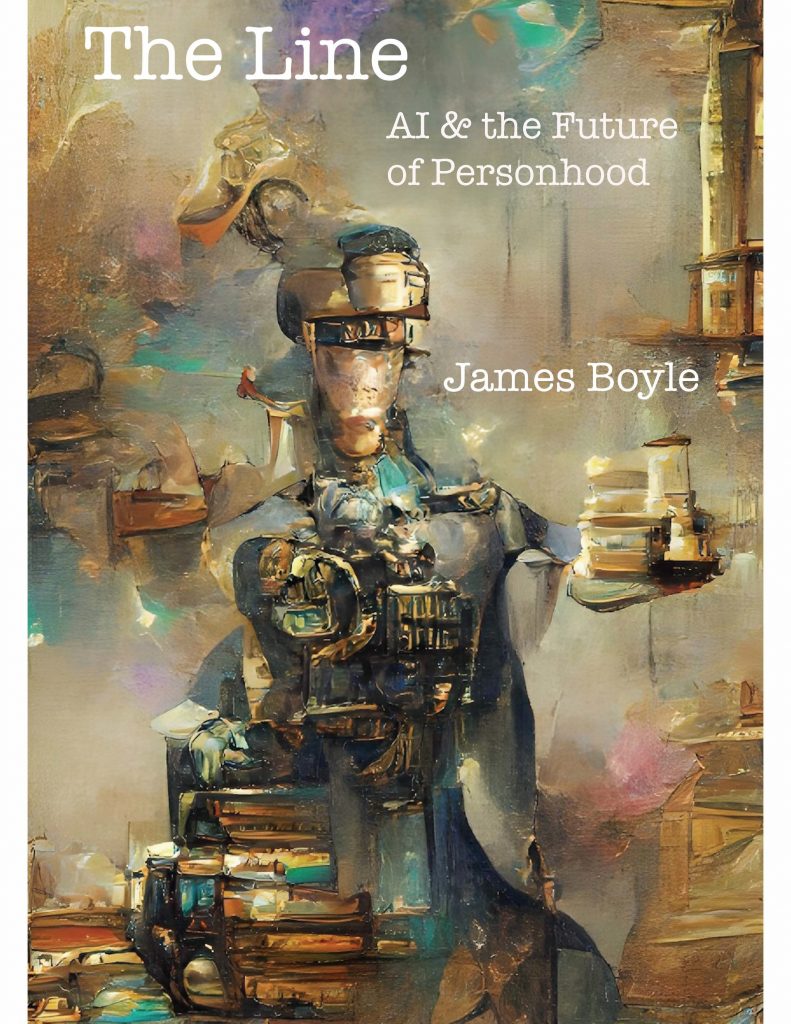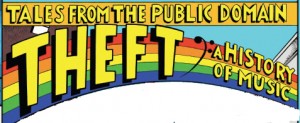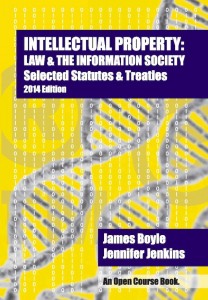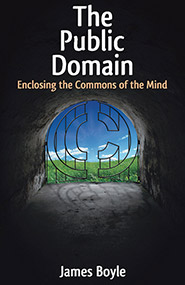(Reader Attention Conservation Warning…This is a self-indulgent post, written as a diary entry as much as anything else… If you want to know what Creative Commons is, you can read this.) Tomorrow I finish my year’s term as Creative Commons Board Chair and step down from the board… I am succeeded as Chair by Esther Wojcicki who is going to be fabulous. Her work as an award winning teacher and a journalist and her focus on making technology work for education are exactly what we need as an organization.
I have been a member of the board from the beginning. My e-mail folders have correspondence dating from 2001 when we thought it would be called “The IP Conservancy” (hardly a name to inspire excitement) and that it would sit on our computers and hold great works donated by public spirited authors and heirs, as well as a free-for-all potlatch donated by the community.
Little by little those ideas (and that name) disappeared, and the Creative Commons you know now appeared. The same e-mail history tells the story of the continual push to have a CC for Science — eventually founded by me, Hal Abelson and Eric Saltzman in 2004 — and to move CC more centrally into education. (I was one of the co-founders of ccLearn in 2007). At the beginning we dreamed, ambitiously, of having 10,000 digital artifacts under CC licenses. There are now more than 200 million. Through the process I got to work with astounding people. Larry Lessig, first of all, who is the true moving force behind CC. Larry invited me onto the board before there was an “it” to be on the board of, and is one of my dearest friends. Molly van Houweling, who was CC’s first leader, Glenn Brown, Diane Cabell, John Wilbanks, Mike Linksvayer, Ben Adida, Aaron Swartz, Mia Garlick… the list goes on and on; it would be Oscar-night long if I mentioned everyone — each one of them someone who at a particular moment did something without which the CC that exists now would not.
Then there is the CC board, with whom I shared fears, beers, triumphs, late night grant writing sessions, and laughs too many to count. Working with Mike Carroll, Hal Abelson and Eric Saltzman was a particular delight. [Vivid snapshots: Hal Abelson, one of the greatest computer scientists of his generation, proofreading the first CC website, line by line and link by link, like a high school intern. Laurie Racine, who heard a half-baked, back of the envelope pitch, and started the flow of money to make it happen. Mike Carroll frowning as he worked on the first draft of the first CC license — our Jefferson. [;->] Glenn Brown smiling with relief as everyone (finally) started to dance at the David Byrne/Gilberto Gil concert. The first time I got yelled at by a collecting society rep. The first time we were mischaracterized in the press. The first sleepless night thinking about the budget.Being condemned because the licenses allowed too much choice.. and too little. (All experiences that were to be repeated.) The first grant I co-wrote that was funded. The 20th grant I co-wrote that wasn’t. Seeing MIT Open Courseware come out — and realizing with a gulp that we had provided a key part of the architecture for global open learning. The first time someone said “lets put this under a CC license” and everyone in the room nodded, not knowing I had any connection to the organization. One of the founders of Google, saying to me, without apparent irony, “well, you have such a strong brand…” People from 40 countries at an iCommons event — brilliant, accomplished people who were lawyers, academics, artists, judges — talking about CC as if it had always been there. Having a stranger explain CC to me. Michelle Thorne asking me about careers in open content.. I nearly chuckled, but she had the last laugh, she found one! The first time a collecting society rep suggested we could work together. The time a Nobel prize winner said “why doesn’t CC do something about this?” as if that were the most natural question in the world.]
And it meant I got to have friends around the world who put something of themselves into CC and changed it for the better — Joi Ito, our CEO, Paul Keller, Alek Tarkowski, Fred Benenson, Prodromos Tsiavos, Melanie dulong DeRosnay, Andrés Guadamuz, Tomislav Medak, Bernt Hugenholtz, Brian Fitzgerald, the whole of the CCi network… I could just go on mentioning names but I’d be doing it more to spur my own memories than to communicate — still that is a function of blogs too. Anyway, this unseemly display of nostalgia and the rehearsal of so many friends’ names serves only to say how very proud I am to have been a part of CC and how excited I am for its future. We will be a central part of the movement that changes the way science is done, I think — the current inefficiencies are too great and the potential gain too enormous to let the chance slide. I think open education is an idea which makes too much sense to be resisted (which is not to say it won’t be.) And the idea of building a global creative commons is just as inspiring as its always been.
Still, its been a long time and after that many years, anyone deserves a bit of a rest and a change. With the creation of Science Commons and ccLearn, and the transition from Larry’s leadership over, I feel as if I’ve already accomplished a lot of what I can contribute. I am not going away of course. I will continue to be a strong supporter of CC and particularly of Science Commons — it needs your help, give now! I going to be doing much more work with the organization I set up at Duke, the Center for the Study of the Public Domain, including finishing a comic book on the history of music and working with the Center for Public Genomics. I will be serving as a board member on the Public Library of Science — believing that there are lots of options for collaboration down the line. And I will be looking on with interest, awe (and occasional total, flummoxed confusion — remember, its Creative Commons we are talking about here!) to see what the future brings. Keep in touch. I will.









[…] see outgoing chair James Boyle’s CC BY(e bye) post — finely crafted writing down to the title, as we have come to expect. As you’ll […]
Thanks for the community conference call, Jamie. I will always be a fan of your “Would we have to forbid Christmas?” trope.
All the best,
Thom
[…] this blog post — by outgoing Creative Commons Board Chair, one of CC’s founder and other CC […]
[…] read outgoing chair James Boyle’s CC BY(e bye) post where he discusses some of the history of the movement and explains how he will remain […]
[…] read outgoing chair James Boyle’s CC BY(e bye) post where he discusses some of the history of the movement and explains how he will remain […]